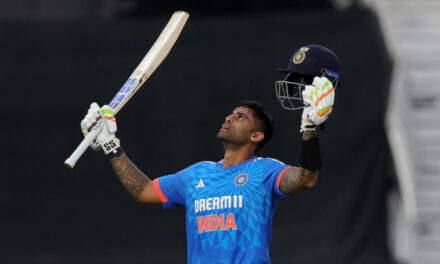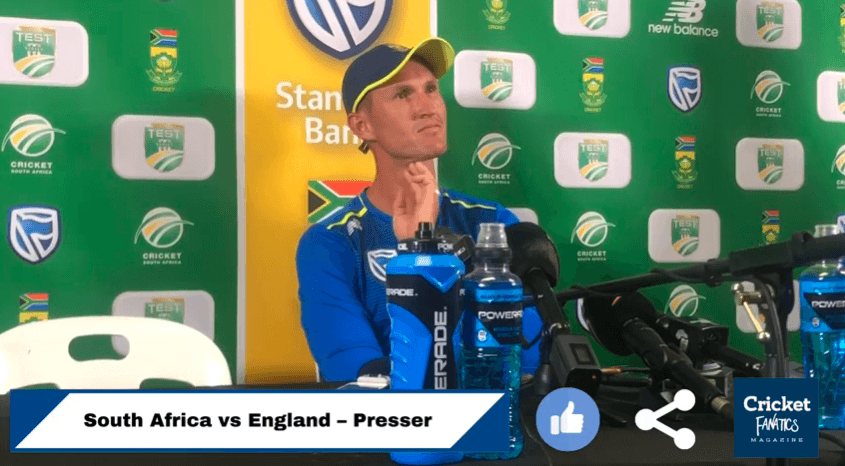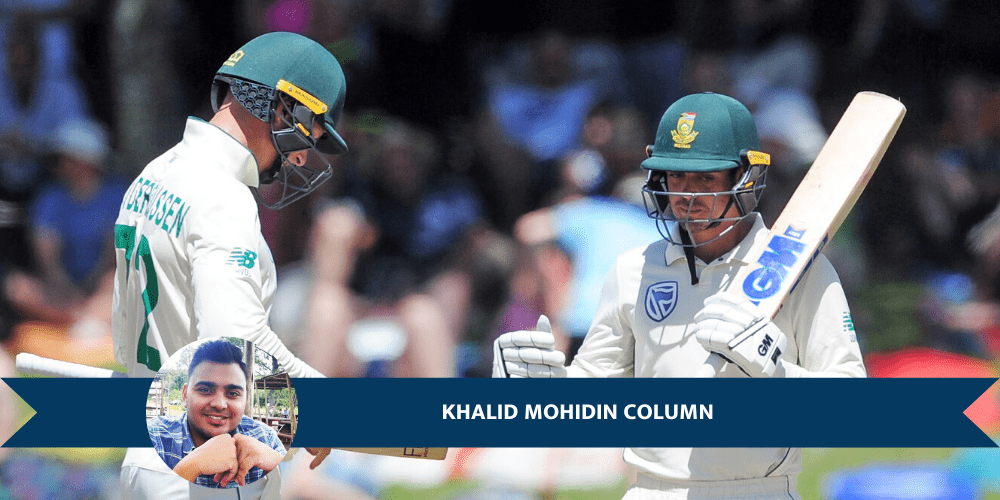This Ashes will be the most important series in Australia’s history, writes Mogammad Allie.
Australian cricket has been in disarray the past two years. Pay disputes, bans, poor results and England’s triumph at the 2019 World Cup has made the biennial Test series against the old foe more important than ever.
Let’s start with the ball-tampering scandal which happened in the third test in Cape Town. Yes, this topic has been quite exhausted over the past year or so but I’m not treating this as an isolated incident but rather a confluence of events dating back to 3 August 2017. It was on this day that Cricket Australia (CA) finally settled on a pay dispute with Australian Cricketers’ Association (ACA).
You may recall the Australian cricket team freeze out over pay disputes. The bottom line is that they wanted more money. The freeze out was orchestrated by the “leadership group” made up of the senior players in the team.
The group is believed to be skipper Steve Smith, vice-captain David Warner, and the trio of senior bowlers Josh Hazlewood, Mitchell Starc and Nathan Lyon. And due to pressure over an upcoming series in Bangladesh later that month, CA eventually succumbed, in the process making Steve Smith the highest paid captain in world cricket, with a whopping US$1,49m per annum.
They went on to draw the subsequent series against Bangladesh 1-1 in a two-match series and got thumped in an ODI series in India.
By the time the Ashes flew in later that year the pay increase had yet to be warranted.
Captain Smith and his deputy, Warner, accounted for more than 1,100 runs, while the bowling trio of the leadership group grabbed more than 60 wickets between them. Collectively, they led the Baggy Greens to a 4-1 series triumph. Despite the thumping win over the old foe the salary raises were yet to be vindicated.
Much of the public saw the pay dispute as essentially choosing money over representing the country and when this happens any demands that you’re granted need to be justified.
A four-match Test series in South Africa two months later presented the perfect opportunity to squash and lingering ill-feelings from Down Under.
Their good form continued in Durban with Australia winning by a comfortable 118 runs and with the Ashes safely back in Australia, all was well in Australia cricket.
Winning generally does that. Fans forget about the negativity and enjoy the present. With the public happy, CA have no choice but to heap glowing praise on their players. Sailing was smooth for Steve Smith and his men.
Australia’s victory in Durban will long be remembered for the ugly tea-time spat between David Warner and Quinton de Kock. Warner for a long time has been known for his abrasive tactics, and this day he got a response that was less kind than he liked.
Australia won the toss and scored 351. The Proteas then narrowly avoided the follow on, Australia’s second innings then set up a daunting 417 runs to win.
It was in this second innings when tempers flared and a heated exchange continued up the stairs into the change rooms during the tea interval.
It didn’t help that the respective team areas shared a common staircase but the hostilities didn’t go too far. Naturally, there were lingering ill-feelings particularly from Australia’s camp and the interviews which followed the game addressed the issue of sledging, one by Warner himself talking about what is and is not appropriate, what is in the spirit of the game and, of course, the famous “line in cricket”, which no one can find but are all expected not to cross.
It’s been rumoured that De Kock brought Warner’s wife into the conversation but not nearly as much was said about what caused the rebuttal from De Kock in the first place. Be that as it may, bullies generally meet their match and this day, warranted or not, Warner met his match.
The cricketing world all had their say, some in favour of Warner – predominantly his countrymen – but mostly not. Warner has made a name for himself by his combative approach to cricket and went around the world sledging people with the exception of India, probably due to IPL contracts.
Nasser Hussain explained in an interview that the Aussies are famous for, when they’re on the receiving end of abuse, playing the “line we do not cross” card. Players often talk about the disgusting abuse they’ve received from Australian crowds while fielding on the boundary. He went further by saying he didn’t know who gave Australia the power to decide where the imaginary line is. But enough about that, what happened next is the crux of the story.
As mentioned before, the plain-sailing men from Down Under ended that day in Durban with the Proteas grabbing a comfortable 6-wicket victory in Port Elizabeth courtesy of an 11-wicket match haul by Kagiso Rabada.
With the series now level, the Aussies were desperate to bounce back in Cape Town. With the series now level things weren’t go quite as planned and the Aussies found themselves very much trailing a rampant Proteas outfit and were desperate to find a way back in.
What one needs to remember is that the Warner-De Kock spat happened in Durban where the Aussies were victorious. Perhaps in their minds they weren’t too affected by what was said because they won.
Throughout the series, Warner was taunted by the South African fans, who came to the stadium in Sonny-Bill Williams masks, to taunt him about his wife who allegedly had a previous fling with the New Zealand rugby player in their younger more vulnerable days.
Despite being the supposed victims in the Durban spat, Warner and his teammates were not being sympathised by the cricketing world. Now they’re in Cape Town and things were not going their way on the field either and this added to their burning desire to win and “stick it” to De Kock and his teammates.
Added to this was the pressure from CA and the cricket-mad Australian public because they saw the players as greedy sportsmen who did not really deserve their pay increase. But now they couldn’t revert back to their sledging ways because the days leading up to this match they were portrayed, by mostly Australian media, as the victims of this “oh-so-terrible” ordeal.
Being the flag bearers of the spirit of the game, who dictate where the uncrossable line was, they had to conduct themselves in such a manner which was befitting of their self-bestowed title.
But soon it all became a bit much for the men from Down Under. They become desperate.
Instead of sledging and seemingly out of ideas, they opted to do something far worse – tamper with the ball. Not to bore you with the details you already know, but basically they brought a foreign object onto the field to scuff up the ball in order to gain an unfair advantage.
This is where it all becomes a bit confusing. We all saw the footage of the yellow object Cameron Bancroft used many times, but this is what bugs me the most – why did he lie about what it was?
First he said it was sticky tape from his gear added with a coarse substance, but then later it came out and he confessed that it was in fact sandpaper.
Again, why did he lie?
If it was the good old days when players carried sand paper and linseed oil to service their own bats then I understand. But that’s back then. These days, players carry around plenty of bats and when one gets chipped they don’t do any repairing or servicing themselves, instead the damaged bat is sent to the manufacturers and they use another.
And other than for a bat there’s no other reason the players would have sandpaper. Once again, why did he lie? Could this have been premeditated?
And was this done before? Personally, I don’t know and I hope not. I hope they just found it lying around and used it, because I’d hate to imagine that this type of thing happens often.
Following the incident it was revealed that the idea was again fostered by the infamous “leadership group”, which consists of captain Smith, vice-captain Warner and a few others, I can’t imagine Nathan Lyon isn’t part of the group.
Then there was the aftermath. Malcolm Turnbull, their Prime Minister even had his say on the incident, saying “It beggars belief”. Following the teary apologies and eventual series defeat, the three named culprits received their punishment from the ICC.
CA, however, were far harsher with their punishment. Perhaps with the pay dispute still causing ill-feelings, Smith and Warner both received 12 month bans, and Bancroft a nine-month ban, from international and domestic cricket.
After all that has happened in Australian cricket’s recent past they will be desperate for a win in their first Ashes series after the most disgraceful incident in their history. In fact, they need to win.
They haven’t won a Test series away from home since their pay dispute was settled. They lost in the semi-final at the World Cup to, make it worse, England.
For Smith, Warner and this is their first Test since their bans expired. And if all of that wasn’t enough this is the Ashes. This is an English team fresh off their first ever World Cup trophy.
If England regain the Ashes they will start the ICC World Test Championship on a high and, knowing the English, probably start calling themselves the best cricket team ever.
For me as a South African cricket fan that’s repugnant. But for an Aussie, that’s what nightmares are made of.











